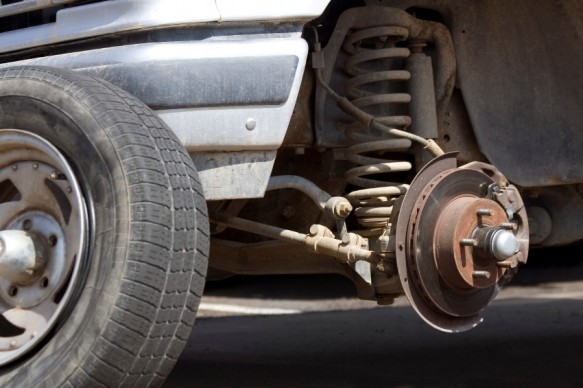dangerous for you and others on the road. It is important to note that not all noise made by your brakes means they are failing, from time to time your breaks will make some noise.
What Makes Brakes Squeal?
Denver brake repair experts say, modern braking systems use a cast-iron disc that is squeezed between two brake pads which are lined with friction material. The disc, pads and caliper can at times begin to vibrate which causes the system to give off a high frequency noise. The noise that is produced depends on how hard you press down on the pedal. Some brake systems are more prone to squealing than others, so it is important to research the brakes you are recommended before having them installed. If you find your brakes to be too noisy, or suspect a problem with your brakes, bring your vehicle into a mechanic. Mechanics can dampen the noise, change the resonant frequency of the arrangement, or replace your brakes.
The Fix(es)
- Check for loose parts.
- Replace shims or clips that are loose or damaged.
- Try applying a dampening paste.
- Replace worn brake pads.
- Change out the brake pad to one made with a different material.
- Check the brake rotor or drum for scoring and other wear.
- Have the rotors resurfaced if their wear is not too deep.
- Replace the rotors or drums.





